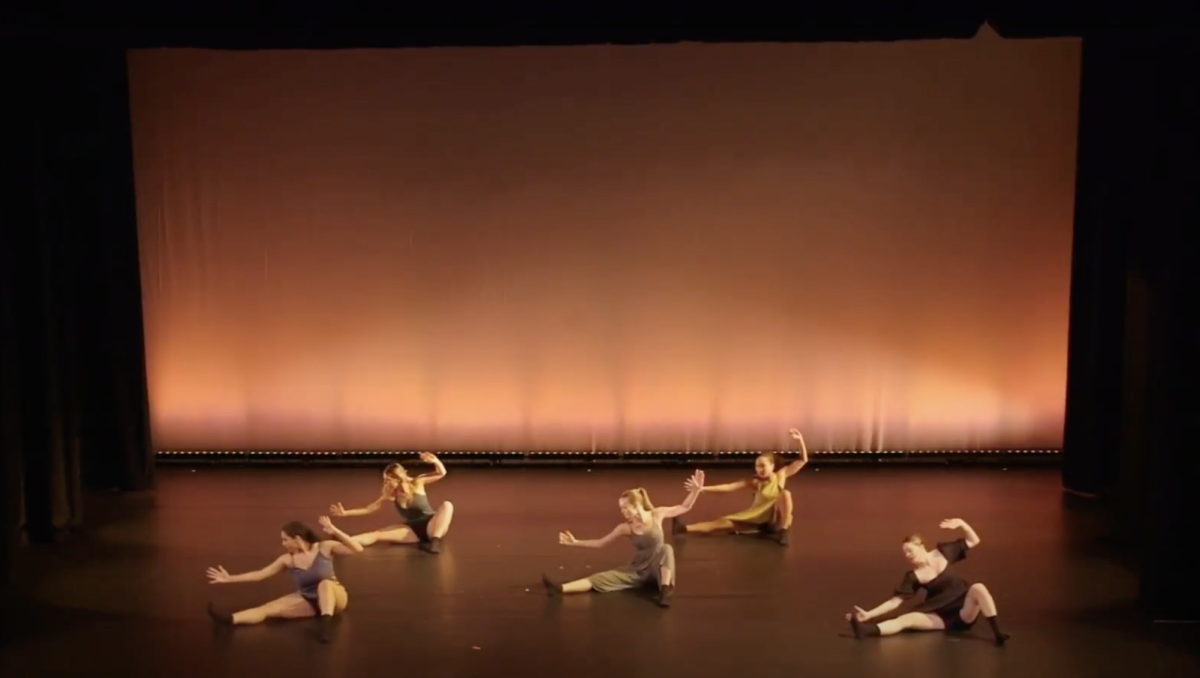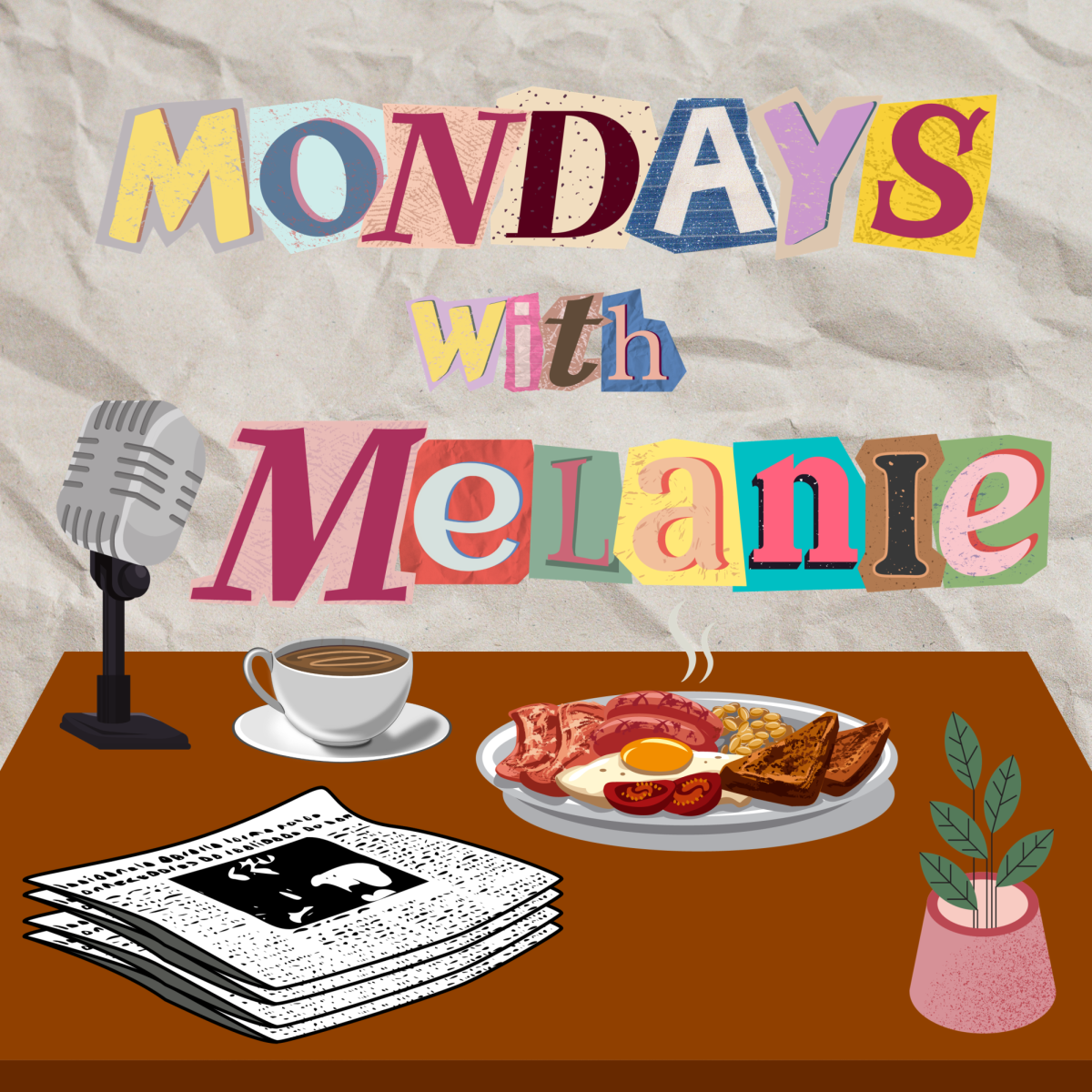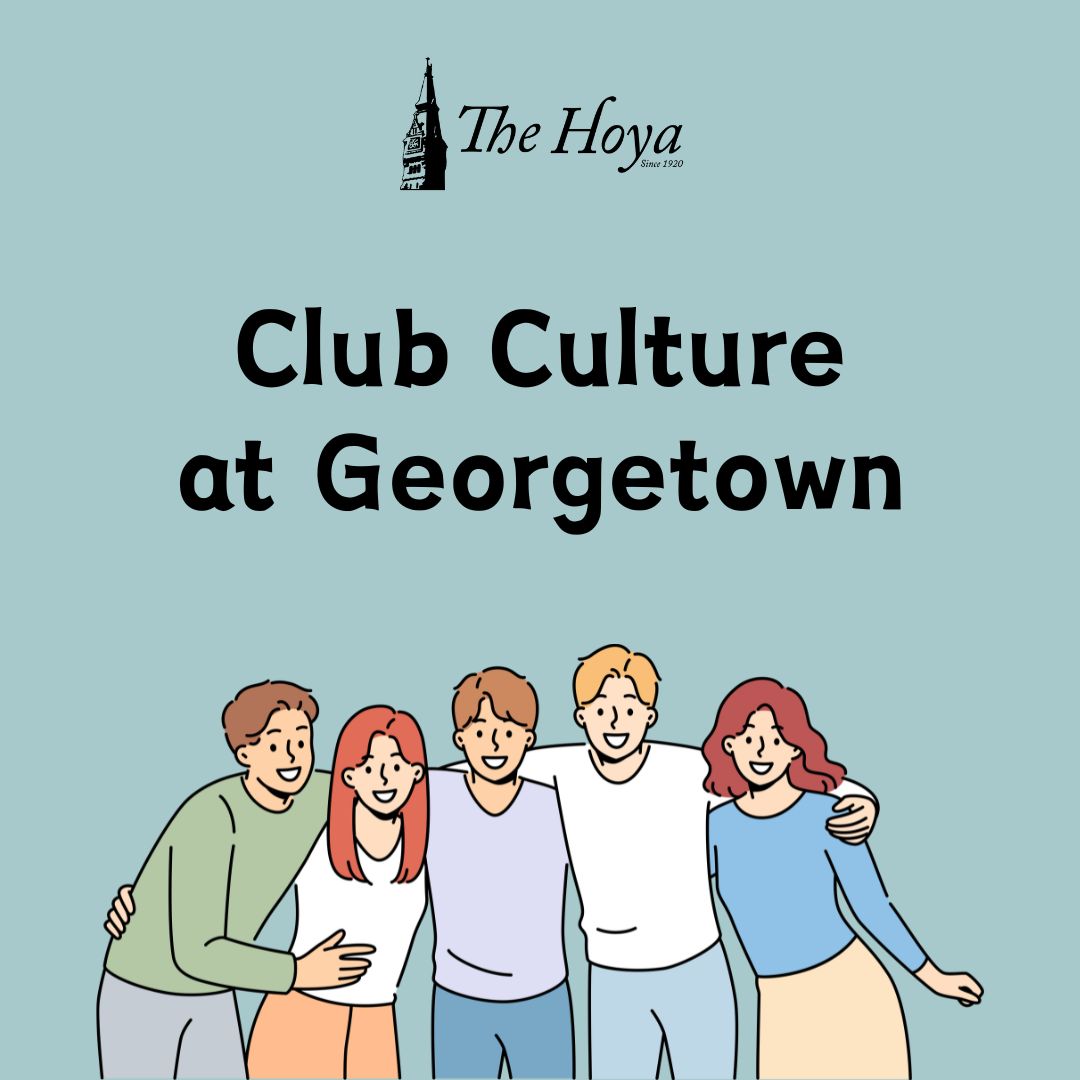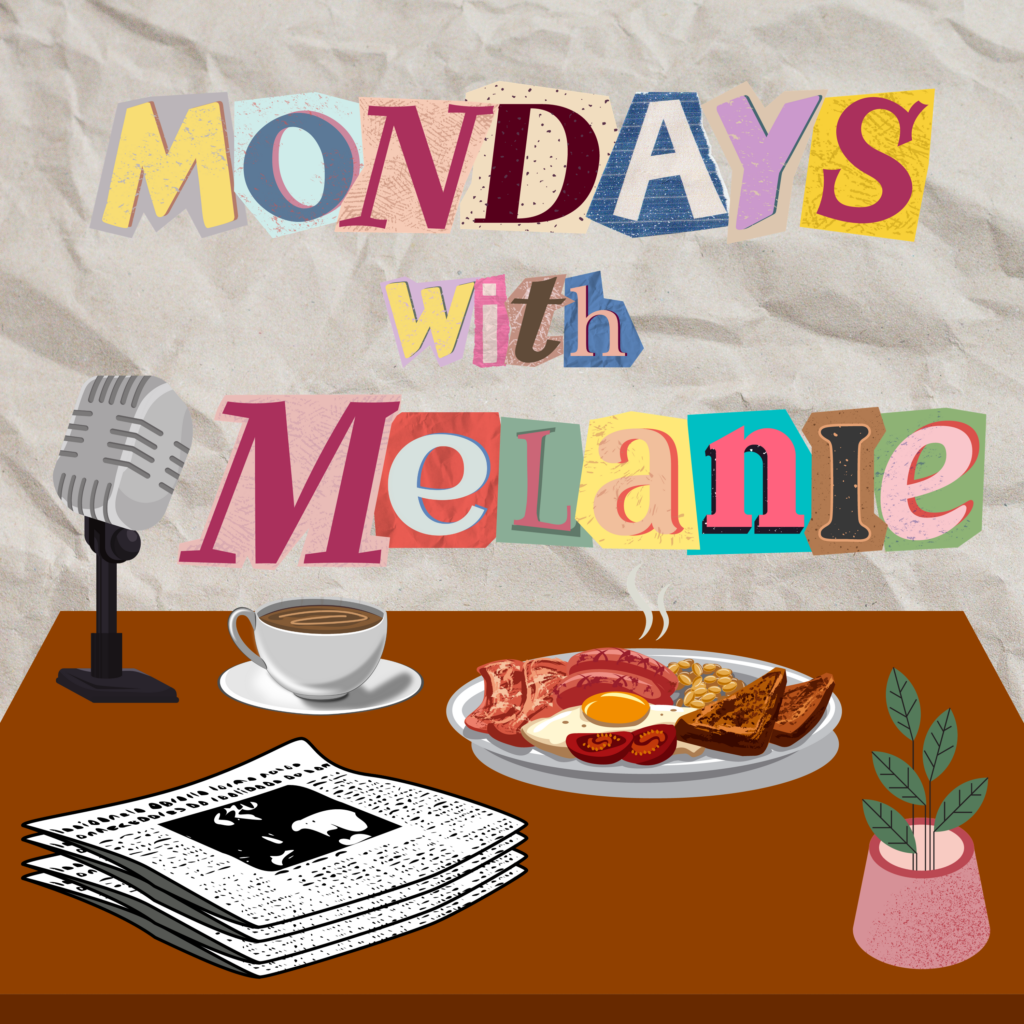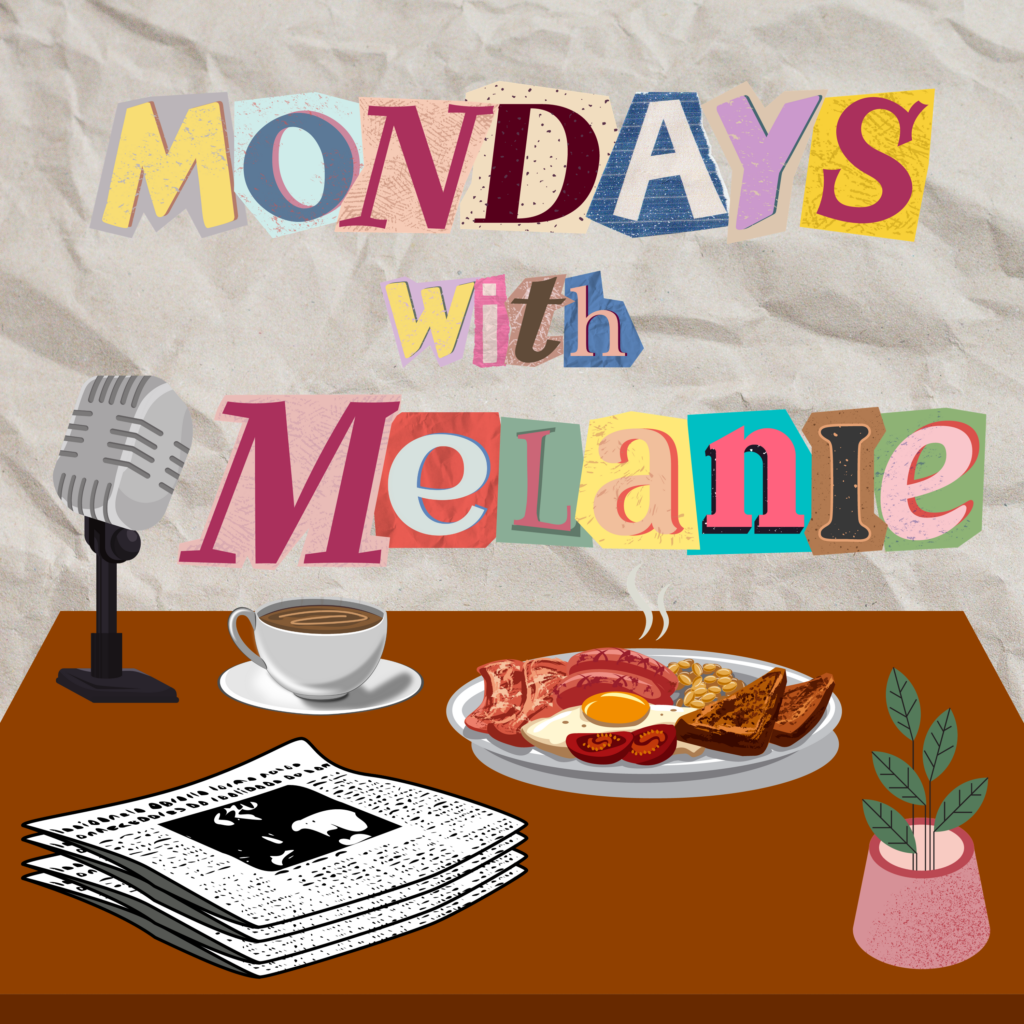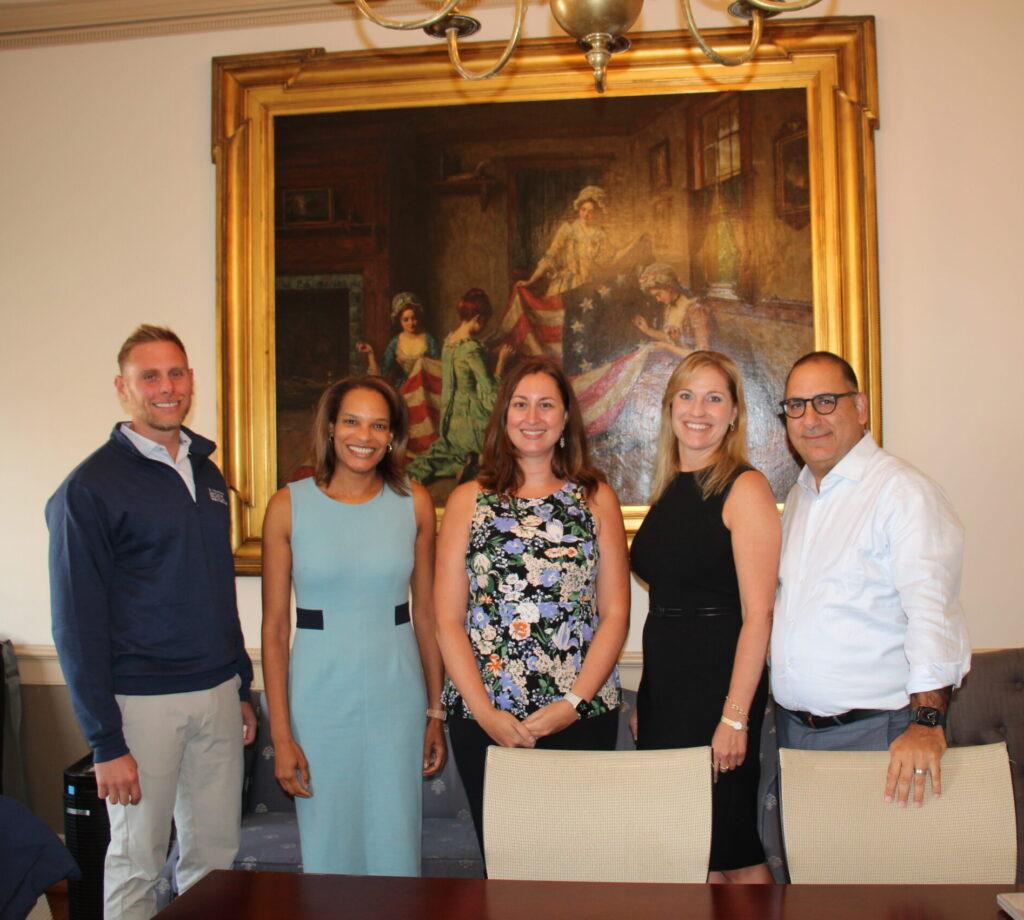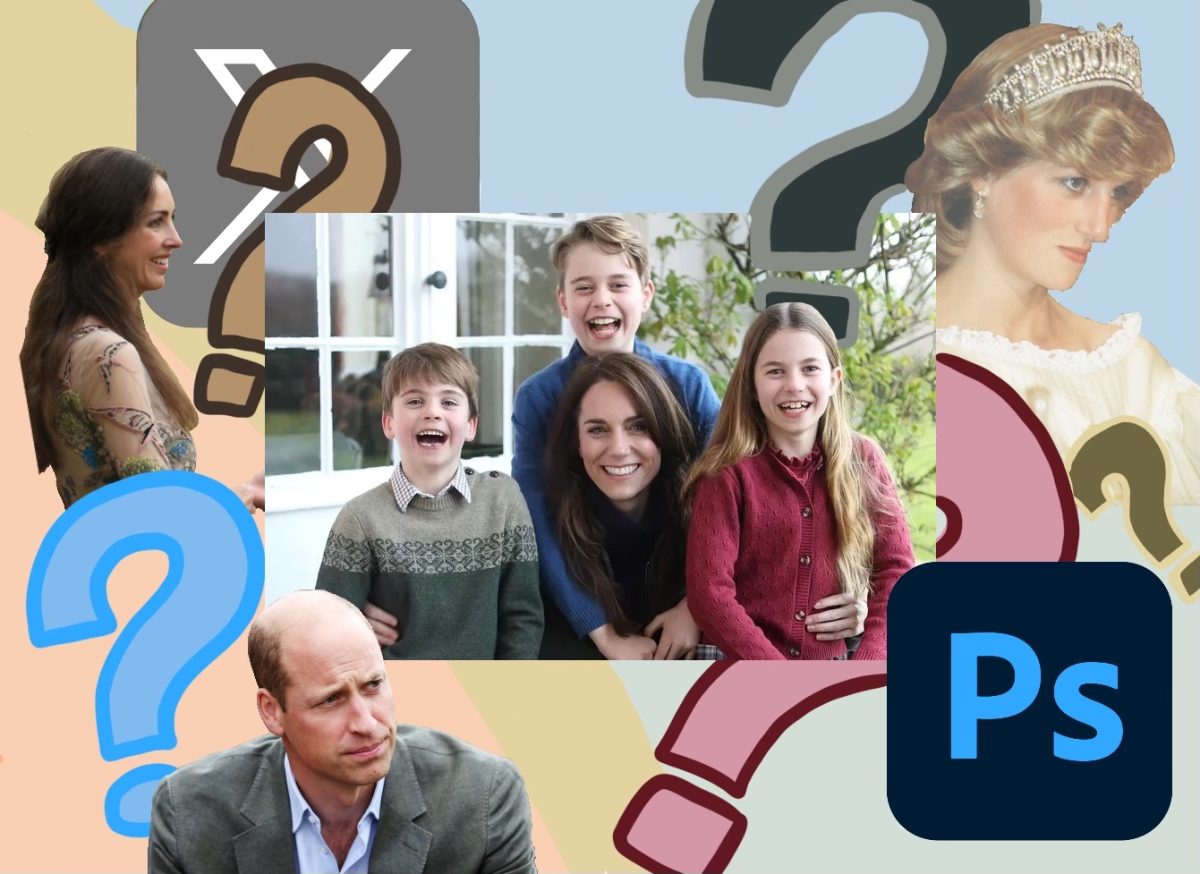Teddy Gerkin (TG): Hello, and welcome to episode four of Behind the Bulldog. We’ve got a special double feature episode today. I’m your host, Teddy Gerkin, and I’m joined by Georgetown hockey players, Liam Mason and Zach Schulman.
Liam Mason (LM): Thanks for having us Teddy.
TG: Of course, of course. So guys, I first want to talk a little bit about your hockey experience before Georgetown. So how did each of you guys and when did you guys start playing hockey?
LM: Yeah, so I actually started playing hockey when I was four, which surprises a lot of people because I’m from California. And so my dad’s coworker’s son played for the Stanford club team. And they played at a small rink in Redwood City, California, if anyone knows where that is, and so I would go to those games. It was right on the glass, and I kind of fell in love with the sport that way. I was terrible when I first played, but I just fell in love with the sport. And so I’ve played ever since.
Zach Schulman (ZS): Yeah, pretty similar. I started at five. My dad asked me what sport I wanted to start playing. And I said football. And he said, No. No, my dad was very worried about the concussion aspect of football and just the wear and tear it takes on your body. So he said pick any other sport. So I said, I want to play ice hockey. And I just wanted to pick the most violent sport I could think of. And I tried it out then I was, much like Liam, awful at it, but fell in love with it, stuck with it. And I’ve been playing ever since.
TG: Yeah. I mean you guys may have been awful. I still can’t skate. So you guys still have a leg up on me. So let’s jump into high school a little bit. You know, did both of your high schools have hockey programs, and how competitive were they?
LM: Yeah, so my high school had a club team just because we didn’t have a rink on campus. But for all intents and purposes, it was a full-fledged varsity team. We probably practiced, we had morning practices. So that was a 30 minute drive at 5:00 a.m. every morning to be at the rink by 5:30, 5:45 to be, like, dressed and ready to go by 6:00. That was pretty much the entirety of my high school career. So I got very used to early mornings. But really to get any good competition, we had to move down to LA, because there wasn’t a strong hockey league out of northern California. So we got used to road trips a lot. And that was kind of where I got very close to my teammates and understood the bond of sports a lot better.
ZS: Very different experience for me. I went to a very small private school in Howard County, Maryland. And we were I think on MYHockey Rankings, we were the second-worst high school hockey team in the state. We practiced maybe once or twice a week after school, and we had probably four guys that played hockey outside of school and the rest of the team was people that just picked it up to fill out the roster, or had played in house a little as a kid. And yeah, we were not good. But the league we played in wasn’t super competitive. The guys that did play hockey, like myself, usually put up four or five goals a game. It was pretty fun. But it was also like, my junior and senior year, I played all 45 minutes of the game. I never got off the ice, I never changed, which is very weird for hockey. And then I played for a second high school team because I had this weird eligibility loophole. So I played for a West Virginia high school team with a lot of my buddies because I’m from western Maryland. And we got to go states both years I played, and that was pretty fun too.
LM: Actually that reminds me, I played my freshman year of high school, I played on two teams, well technically I played on three teams, because if you were a freshman on varsity you had to play on the JV team as well. And I played for my club team back home. So I was practicing probably nine to 12 times a week, depending on the week. And I would usually have three games a weekend. During tournament weeks, it turned into three games a day, every day for the weekend. So I got a lot of stress injuries my freshman year of high school, but yeah, got through it. I just played one team after that.
ZS: Yeah, for the last three years of high school. I was playing for three teams. I was playing for those two high school teams and then my club team. And yeah, it got busy. We didn’t practice every day like you guys did for high school. So it wasn’t as stressful but I was practicing pretty much every night of the week, multiple games on the weekend. It was fun, though. I liked playing that much. And that’s why I picked up another team was just I wanted more ice.
TG: Yeah, so, you know, obviously a ton of ice time in high school. When you laced up the skates for the last time in high school, maybe before you knew about the Georgetown hockey program. Was there, is there any part of you that thought about that and like how did that feel?
LM: Yeah, I mean, it’s really something that doesn’t, you don’t think about until you’re there. We lost our last game and we were trying to go to Nationals. We lost the game that would have sent us to Nationals in overtime, I think it was double overtime. And I just remember, like sitting in the locker room with my teammates, I wouldn’t take my jersey off because I knew that would be the last time that I would ever wear that jersey. That’s making me sad thinking about it now. But that was, like I said earlier, I was very close to my high school teammates. And so that was just difficult for me. And I mean, every year when you’re a freshman to when you’re a junior, you hear the seniors give speeches about “Oh, don’t like, don’t take it for granted. Like fight every game like, like it’s your last,” and you really don’t understand it until it is your last game.
ZS: Yeah, I mean, for me, it was kind of weird because it was like three separate endings going on kind of simultaneously. So my last high school game, for my actual high school, was actually pretty awesome because we hadn’t won a single game all year. And our last game was the senior game. And we were playing the other worst team, the actual worst team in the state. So we actually had a chance to win. My buddy put up a hat trick, I put up six goals, and we won nine to eight. Pretty much anytime we won a game we had to score like 10. And that was even like, in previous years, we had been better because we had more travel players. But my senior year, we were awful. And that game was pretty great, though, we got a good fan section out for that game and winning, finally winning a game after all the frustration that season was pretty cool. And then for the West Virginia team, it was actually heartbreak too, you know, we lost in states, we felt like we had the team to take it all the way. We had 13 seniors. We lost to a team we weren’t supposed to lose to. And similarly, with club, we made it to the championship. And we lost and both times it was like, “Wow, this, this is really it.” It was also, all of this happened before I knew where I was going to college. So I had really no notion of whether or not I would be able to play hockey, ever again really, competitively. And yeah, that hit me pretty hard, because competitive sports is like, like I said, it was a big portion of my life in high school, took up a lot of my time and you kind of feel like you’re losing a part of yourself. And you’re, you’re losing that –– you’re not really losing that group of guys, because you’re still gonna see all of them. But it’s not the same as the camaraderie of being on a team.
TG: Sure. Yeah so now we get on campus. All right. Now we’re on the Hilltop, could you talk about maybe your first experience, either learning about the team, or maybe at tryouts or first practice after making the team.
LM: Yeah, I mean, so the first thing we do is, is like a team meeting. Before anybody gets on the ice, you’re all brought into a Healy classroom. And the captains just go over names, where you’re from, where you prepped and player comparison. So that’s always really funny, especially as a current player, having been around it the second time. It’s just fun to be in all the inside jokes and none of the rookies know what’s going on. But everybody’s laughing and they kind of feel obliged to laugh too. I’m sure you can relate to this.
ZS: I mean, it was really awkward for me. They were like, where did you prep, I was like, I didn’t prep. And then they were like, player comp, and I couldn’t think of an anything. I mean, it just, a lot of it catches you off guard. They even did a quiz for us on like, hockey knowledge. And like, all the questions had like, all the answers were wrong. You just had to pick whatever you thought was right. I don’t know, they just like to mess with you when you first come in. And it’s really funny because it’s like a group –– especially with your fellow rookies, it’s like a group experience of getting introduced to the team.
LM: Yeah, it also scares a couple guys off who aren’t really serious about it. So it does that benefit. But yeah, and then there’s like after that, you just kind of hang out with the guys and we go back to one of the seniors houses and spend some time together. And my freshman year the seniors, maybe guys would kind of like peel off after a while. But we spent the entire day with the seniors. It was one of my fellow rookie’s birthdays that day. So we went out to Clyde’s, had dinner with those seniors and the freshman. And they just talked to us about the team, about their experience. This was before they even knew we would be on the team, because tryouts hadn’t happened yet. And it was just like, a huge, amazing introduction to Hoya hockey for me.
TG: So could you talk a little about what your practice and game commitment looks like? And how that, you know, if that has any impact on your academic or social lives?
ZS: Um, yeah. So practice schedule. We practice once a week on Tuesday nights.
LM: First semester, we practice once a week, second semester, two-
ZS: Ramp it up to two times a week. Definitely. It’s late night practices. Half an hour from the rink.
LM: You have to want to be there.
ZS: Everyone that’s there wants to be there, loves the team. It’s really a testament to how much each and every player on the team cares about the success of the team. We get great turnouts, all the practices. I talked to guys that are on, you know, different sports. And, you know, they say that they don’t get the same consistency out of their guys, and they’re on campus for their practices. So, to see the guys turn out so much for off-campus practices, late nights before class the next day, it’s always a great time too.
LM: And then during the season, depending on the time of the season, it’s usually like, we actually play more than we practice. So we’ll have two to three games a weekend, depending on how deep in the season we are. Whether it’s like a tournament weekend, or, or how many teams are visiting, whether it’s an away weekend, stuff like that. And so yeah, it’s, it’s a lot of, it’s a big commitment, it’s a big time commitment. But everyone who’s there loves to play. And so that’s why we’re doing it.
TG: Yeah. Yeah, that’s awesome. Now, with those games, you guys get to play at a couple of really cool places. You know, including, you’ve got a game against GW at Capital One with a bunch of students there. You’ve got the championships in Winston-Salem, could you guys talk about that, the experiences playing there?
LM: Yeah. I mean, those are some amazing venues. Where we’ve been, we’ve been steadily trying to get more Georgetown students to come out, Cap One game is always on a Sunday. So it’s a little difficult there. But I think we’ve been getting more attendance, at least since my freshman year. The two games I’ve played there, we’ve gotten more attendance, which is great. I want it to be enough Georgetown students so I hear Georgetown being cheered instead of GW, but we’re still undefeated at Cap One against GW. So I’ll take that away as a win. We go down to New Jersey and Philadelphia, once a year. Or go up, I guess. Play UPenn, St. Joe’s and Princeton. Princeton and UPenn have some historic arenas. So that’s always been amazing. It’s just, it’s really cool to be able to play in those barns and think about the teams that have come before us and the teams that will come after us there.
ZS: And it’s a great trip for team bonding. We stay in a hotel together, all the guys hang out before and after the games. And that was one of the, that was pretty early on in the season. So it was a great time for the rookies, the new guys on the team to get pulled into all the group activities, pulled into the team dynamics. It was a lot of fun. Yeah, same thing with Winston-Salem. It’s just later in the season. And so by then the team’s really close. Yeah, I will say this year, going down and getting to play in playoffs as a freshman was so much fun. And I honestly felt like I had never been on a team before that felt so close, especially during that run of games.
LM: There’s something that clicks in the playoff season where the team is just so much closer, and we kind of, because we’re nearing the end of the season, we just understand how deep everything is. And it’s amazing being a part of, but also seeing everyone just turn it on and lock in for the season.
ZS: I never saw more effort throughout the whole season than in those games, the guys really gave it everything. I mean, it showed, because we pulled off a couple of upsets, we made it a lot further than we were expected to.
LM: Yeah. Came in as a seventh seed and killed the number 10 seed, killed the number two seed and then lost in overtime to the number one seed. Yeah.
TG: Yeah, that’s awesome. So you’ve already touched on it a little bit about, you know, how being more of a social team builds those relationships. Could you maybe emphasize anything about like, what having those types of relationships on campus means to you guys?
ZS: Especially as a freshman, it was great to have guys that were older than me. But also guys my age to just see around campus, say hi to, talk to in your classes, talk to around campus, go get meals with. But on top of that, I feel like, of any sports team I’ve played on in my entire life, it’s the least clique-y team I’ve been a part of. And all the guys want to be doing stuff together all the time. We get, we have a group chat. And every day people will be all day long, they’ll be saying, “Who wants to go get Leo’s with me, who wants to go get Epis with me, who wants to go play Spikeball on the lawn.” So guys are always just doing things together as teammates.
LM: Out of anything I’ve experienced at Georgetown it is like, it’s the team where, it’s the club where the seniors want to help you the most. My freshman year the seniors made a group chat with all the freshmen. We had dinners with the seniors. And they just really take you under their wing and make sure you’re doing a good job. I still, we have a, one of our guys is a first-year in the law school now. He doesn’t play for the team anymore just because he doesn’t have enough time, but he’ll still come over to Lau to study sometimes and will text the guys in my rookie class, like “Who’s around” so we can, he can study with us, catch up. So they just, they really do care. And we still talk with a lot of them. And I think the seniors this year are doing an amazing job with that as well.
TG: And then it may not be as well known, but Georgetown Hockey is also a huge philanthropic program. Um, you know, raised almost $9,000 for BellRinger. Can you just talk about how important that philanthropy aspect is to the holistic character of the program?
LM: Yeah, I mean, it’s, I hope we’ve conveyed it’s an amazing group of guys. And for all of us, hockey is something larger than, than a sport. And because we’re such a big group, around 30, 25 guys, where can we try to use that size in order to come together and do good things. We, we did BellRinger –– used our, like physical ability to raise money for cancer research. But right now, we’re actually working on a project with REUSE, which is run through the farmers market. This Friday, we’ll be doing a drive to collect clothes and like, package them up and, and take them so that REUSE can sell them at the farmers’ market. So I’m really excited for that. We’ve been getting a lot of guys to sign up, to volunteer for that project. Yeah, I mean, I’m one of the social chairs, I’ve been trying to, to increase the amount of philanthropic stuff we do. And I think there’s still some stuff to work on. But I think we’ve done a lot so far. And I’m excited to see what we can do with, with our guys.
TG: Alright, so I think we’re gonna try and wrap this episode up here, could you first both share, maybe outside of Georgetown Hockey — because it sounds like you guys have a lot of great memories — what you would consider your best memory at Georgetown so far?
ZS: Probably going to the basketball games this year, with a lot of my friends. We, we went to almost 10 games this year. And the student section was always really live, despite not being a great team this year. And it’s always a blast. That energy in there’s a lot of fun, and you feel like you’re part of, you see all the people that you know from your grade and the school. You feel like you’re part of a larger community, and I feel like that’s always a lot of fun.
LM: For me, I’m very involved with Catholic life on campus. And so this past semester, I went to a retreat at the Contemplative Center that we have in Virginia. And that was an amazing experience for me, just being able to kind of step away from campus for a bit, and take some time to just reflect on what Georgetown has meant to me, what I want to make out of it, and the things I still, like, want to do, and how to get there is, was amazing. And so that was probably one of my favorite memories at Georgetown.
TG: That’s awesome. Yeah. So we’ve got this closing bit, it’s called Word of Wisdom. We want you guys to leave our listeners with just one thing you’ve learned from playing sports that you use in your everyday life, just one piece of advice.
LM: I mean, I wrote, I wrote part of my college essay about this, but the, like something I really learned through sports is communication. I think at any sport, like you can’t do, you can’t go to places, you can’t do great things if you’re not communicating with your team. That’s why I love team sports so much. I talked a lot about how important like the, my teammates were to me. And I think that all of that comes from how I was able, how I’ve learned to communicate with them. Because if you can’t communicate, if you can’t help, like constructively criticize each other, if you can’t talk about what you guys need to do better as a line, as a team, then you’re really not gonna do anything, you’re really not brothers. And so I think I’ve been able to develop my communication skills a lot through that. And, and yeah, I’d say I completely owe that to sports.
ZS: Yeah, I mean, I’ve always said that I feel like sports is kind of a microcosm for life in general. In the, in the way you just said, communication with other people and the ways in which you interact with coaches, players, opponents, but also you develop different types of skills from participating in it. So whether it’s time management skills, because of, you know, we talked earlier about how much time we devoted in high school and now, and how that can conflict with different parts of your life. I think I would also say, just how much you put in is how much you get out of it. So, you know, if you’re not happy with how much playing time you’re getting on the team, how your team is performing, you can put in more effort. You can come together as a team to get more out of it. I think that’s something that’s true of a lot of different things in life.
TG: Yeah, it’s great. Well, thank you guys so much for joining us.
LM: Thank you for having us, Teddy.
ZS: Thank you Teddy.
TG: And for all of our listeners, you know, make sure to get out to these games, a. At Capital One especially., I went this year and it was a phenomenal experience. That’s all I’ve got. Go Georgetown Hockey.
This podcast was recorded and edited by myself, Teddy Gerkin and produced by Sofia Nathoo and Emily Han.



